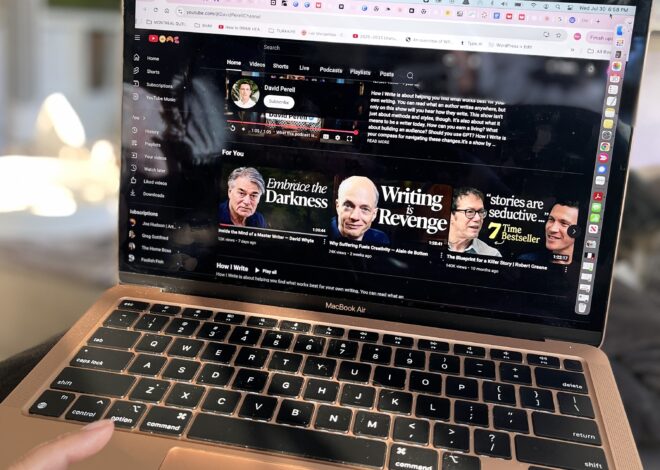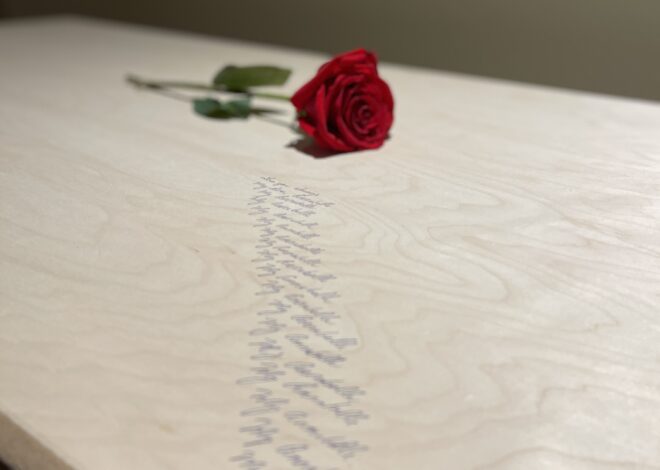
When Your Friend Didn’t Receive an Inheritance and You Did
If you have ever received something meaningful from a parent, such as an inheritance, a letter, or a final gesture of care, and someone close to you did not, you may have found yourself in a situation that felt unexpectedly heavy. You may have spoken from gratitude, only to suddenly be confronted with someone else’s grief. The air changed. So did the conversation.
I was settling into my hairdresser’s chair, expecting the usual chatter about weekend plans and celebrity gossip. She has always been the type to fill silence with questions, not really listening for answers, just keeping the conversation flowing like background music.
When she asked why I had been away for so long, I told her I had been in Montreal handling my mother’s estate. The scissors stopped mid-cut.
“Oh, that must be a lot to deal with,” she said. For the first time in years of appointments, her voice carried something different. It was quieter. More present.
“It is,” I replied. “But I’m grateful she left everything organized. Made the whole process easier.”
The silence that followed was not her usual quick transition to another topic. When she finally spoke, her words came slowly and carefully.
“My dad didn’t leave me anything when he died last year,” she said. She focused intently on sectioning my hair. “Everything went to his mistress and the kids he had with her. Kids I didn’t even know existed until the notary called.”
In that moment, my words, which were casual and appreciative, became a mirror for her. I could feel the shift. What I had received revealed what she had not.
Inheritance Is Never Just About Money
Every inheritance carries meaning beyond the material. It is not just about money or possessions. It is about how someone held you in their thoughts when they knew they would not be here anymore. A parent who names you in their will or leaves behind something for you is saying that you were part of their final chapter and that you were important.
My hairdresser’s father told a different story. His choices said that the daughter who had known him her whole life mattered less than the family he built in secret. The will did not just transfer property. It transferred worth. It revealed a hierarchy of value that had never been spoken aloud.
This is why inheritance stories rarely feel neutral. They are not just legal matters. They are love stories or the absence of them. They hold within them the question so many children carry. Did I matter enough?
When someone is left out of an inheritance, the message they receive is not only financial. It is deeply personal. It tells them that in their parent’s final decisions, they were not chosen. That truth is devastating. It speaks to something primal, which is the desire to be loved unconditionally by the person who brought you into the world.
What It Feels Like to Be Forgotten by a Parent
There is a unique pain that comes from being forgotten by your own parent. It is not just grief. It is a fundamental rupture in identity. A parent’s love is supposed to be steady, foundational, and unquestioned. When that love is withheld at the end, it reshapes everything that came before it.
My hairdresser was not only grieving her father’s death. She was grieving the loss of the father she thought she knew. She had believed she was his daughter in the full sense of the word. His final act told her she had been a part of his life, but not a priority in his heart.
This realization cuts deep. It rewrites memories. It casts doubt on years of affection and shared moments. If someone could exclude you so completely in death, then what did their love mean in life? These questions are not easily answered. They sit quietly and return again and again. Was I ever truly chosen?
When Your Experience Becomes Someone Else’s Grief
When you hold something that someone close to you did not receive, it can stir a deep and uneasy feeling within. This discomfort is not limited to the present moment. It often touches something older – fears of separation, of being seen as different, or of carrying a reality that another longs for without knowing how to hold it with compassion.
The impulse to minimize our experience, to apologize for what we have, or to carry unnecessary guilt does not make us dishonest or unkind. It reflects a deep desire for connection. We want to remain close. We do not want to be isolated or to become a reminder of what someone else has lost.
When we hide or alter our truth to protect another, we may also be shielding ourselves from the discomfort of being fully seen, in all our complexity. This kind of avoidance, even when subtle, can increase the very distance we want to close.
The truth is that it is not the presence of what we hold that wounds. It is the sense that there is no space for both of our realities to exist side by side. That one story must cancel out the other. Healing comes from presence. It comes from standing firmly in your own reality without defensiveness or shame, while also being present to theirs without judgment or rescue. This is not easy. It requires maturity, humility, and the ability to hold paradox. Life often unfolds with injustice. Grief and grace walk together. Love can endure, even when paths diverge.
What to Do When Someone Lets You See Their Pain
When someone shares their story of being left out, they are revealing the most vulnerable part of themselves. They are saying, “This is the place where I felt forgotten.” They are offering you a truth that is often kept hidden out of shame.
Your role is not to fix their pain. Your role is to witness it. You are there to stay present with it. You are there to let it be what it is without trying to diminish it or make it go away. That kind of presence is rare. It is powerful. And it is exactly what they need.
You do not need to downplay your experience to meet someone in their grief. You simply need to stay. You need to listen. You need to acknowledge that both of your experiences matter.
Not All Inheritances Are Written in Wills
Not all inheritances come with a notary and a will. Many of the inheritances we carry are invisible. Some of us inherit love, confidence, and a sense that we belonged. Others inherit doubt, loss, and the question of whether they were ever truly wanted.
Neither type of inheritance is chosen. Both shape us in ways we may not see until much later. The real question is not who deserved what. The real question is what we will do with what we have been given or denied.
Will we hide our grief because someone else is hurting? Will we ignore someone else’s pain because it makes us uncomfortable? Or will we make room for the full spectrum of human experience, even when it feels complicated?
Presence Heals What Guilt Cannot
When someone you care about tells you they were left out, they are not asking you to make it better. They are asking you to be there with them. They want to be seen in the place where they were once overlooked. Your attention, your presence, and your willingness to listen are the true gifts.
You do not need to carry their pain. You need to recognize it. You do not need to give away your own truth. You need to honor it. When you can hold space for both, you show that love does not need to be divided. It can be expanded.
The conversation in the salon ended in silence. She continued to style my hair, and I sat quietly, feeling a shift in the air – a subtle but undeniable opening. In that stillness, I glimpsed a truth that words often fail to capture: grief and love are not opposing forces but woven threads in the same sacred tapestry.
She had offered me a glimpse into a wound so deep it could have been really awkward. Instead, holding that space without rushing to fix or explain, we entered a shared realm beyond pain and judgment. It was a moment of radical presence, where two lives scarred and stood side by side in tender acknowledgment.
In that fragile encounter, I realized that healing is not about balancing equations or erasing difference. Healing is the courage to be fully seen and to see another, to hold paradox without needing resolution.
Sometimes, the deepest healing begins not with answers, but with the willingness to sit quietly in the sacred space where pain and grace meet.
This reflection offers personal insights for contemplative purposes. For professional guidance regarding relationship challenges or grief, please consult a qualified therapist or counsellor.



